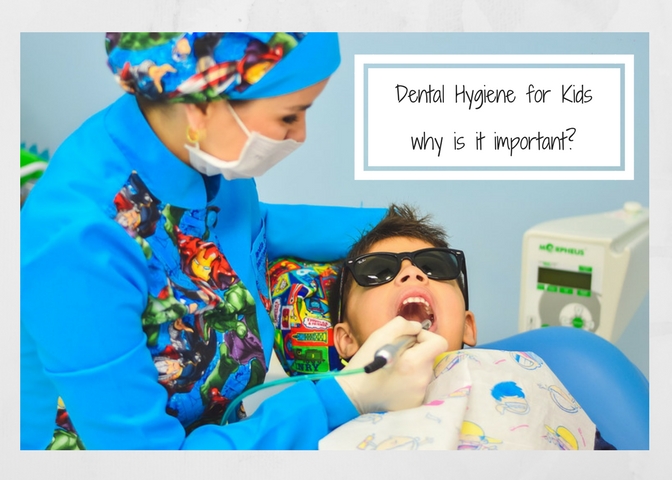We know what good oral health is. We know how to brush and floss properly. But what about our kids? Poor oral care can lead to infection, disease, or other teeth problems. Dental hygiene has become one of the concerned areas for parents. Intake of processed food, junk food, sweets has made its place in our eating habits. Kids are getting cavities at an early age.
Oral health is a key component of general health; if left untreated, oral problems such as tooth decay and gum disease can cause trouble throughout the body. It is never too early to encourage healthy dental hygiene for kids. It starts slowly and we don’t realize it. So, how about taking care of their dental hygiene from an early stage?
- Start early: Dental hygiene should begin when your child is a baby. Start using a soft child-size toothbrush around the age of 1 or 2. You should brush your child’s teeth with water at least twice a day. You also can add a small dab of toothpaste that doesn’t have fluoride in it. From birth to 12 months, you should gently wipe your baby’s gums with a clean baby washcloth or gauze. New baby teeth, which start emerging around 6 months of age, should be gently brushed with a soft-bristled toothbrush with a small head and just a thin smear of fluoride-free toothpaste twice daily.
- Proper Brushing: Dentists recommend brushing your teeth at least twice a day. Kids tend to brush them hard in order to clean them. Proper brushing means neither too hard nor too light. It should be a moderate pressure. Kids should be told to brush their teeth for at least two minutes, covering all surfaces of their teeth, mouth, and tongue.
- Choosing best toothbrush: Comfort is the key. But for the vast majority of people, a soft-bristled toothbrush will be the most comfortable and safest choice. Check out this article to know more about manual toothbrushes.
- Flossing: Flossing helps in taking out the food that gets stuck in the gums which creates bad breath. It removes bacteria that are the precursors of plaque, which if left will turn into tartar that cannot be removed by regular brushing or flossing.
- Dental visits: Schedule your child’s routine dental visits. It helps in identifying any dental issues at an early stage. A dentist appointment is just as important as regular doctor visits during your child’s formative years and can help prevent a future need for oral corrective surgeries and procedures.
- Avoiding sticky and sugary food: Do not let your child have a lot of soda, fruit juice, or sweetened drinks. Limit sweet snacks and drinks between meals. If your child does have sugar, make sure they brush their teeth afterward.
Encouraging young kids towards a path to dental hygiene:
- Let children help choose their own toothbrush. They can pick one that has a favorite color or character.
- Let children help choose toothpaste. They can pick their favorite flavor.
- Read books or watch videos that talk about dental hygiene.
- Use a timer to make sure kids brush their teeth for 2 minutes. Or play their favorite song to help keep track of time.
- Reward children for good oral care. Do not give them food or sugary treats. Offer something healthy or simple instead, like apple slices or a gold star.
- Plan a fun activity following your child’s dentist visit.

